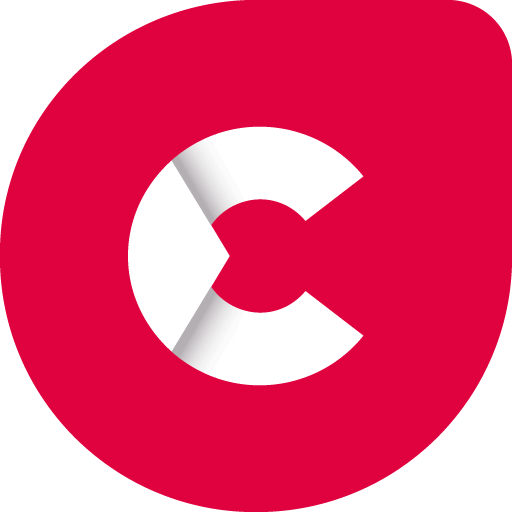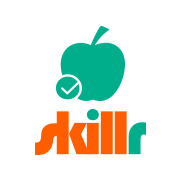Description

Campus 365

Tinybop
Comprehensive Overview: Campus 365 vs Tinybop
To provide a comprehensive overview of Campus 365 and Tinybop, we should first clarify what each product is and the context in which they operate.
Campus 365
a) Primary Functions and Target Markets:
- Primary Functions: Campus 365 is an educational management platform designed to streamline various administrative and learning processes within educational institutions. Its primary functions include student information management, attendance tracking, fee management, timetable scheduling, examination management, and communication tools (such as notifications and announcements).
- Target Markets: The platform primarily targets schools, colleges, and universities looking to digitize and optimize their campus management processes. Its features are particularly suited to administrators, educators, and students within these institutions.
b) Market Share and User Base:
- Market Share: Campus 365 competes in the educational technology (EdTech) space, where there are several players like Blackboard, Canvas, and Schoology. While specific market share data for Campus 365 may not be readily available, it likely captures a smaller niche compared to larger, more established platforms.
- User Base: Campus 365 caters to a diverse set of educational institutions; however, its user base might be smaller and more localized depending on the region and level of market penetration.
c) Key Differentiating Factors:
- Customization: Campus 365 typically offers high customization options to cater to the specific needs of different educational institutions.
- Comprehensive Management: Unlike some other platforms that might focus solely on learning management, Campus 365 provides a more holistic approach by integrating administrative functions.
- Affordability: It aims to provide cost-effective solutions, making it a potential choice for institutions with budget constraints.
Tinybop
a) Primary Functions and Target Markets:
- Primary Functions: Tinybop is a company known for creating educational apps, particularly interactive STEM apps for children. Its apps, which are available on iOS and Android, cover a wide range of scientific and natural topics, helping kids learn through exploration and play.
- Target Markets: The target market for Tinybop includes children (primarily in elementary and middle school), parents, and educators looking to supplement classroom learning with engaging, multimedia content.
b) Market Share and User Base:
- Market Share: Tinybop operates within the niche of educational apps for children. It faces competition from other educational app developers but holds a strong position due to its emphasis on quality content and interactive learning experiences.
- User Base: Tinybop has a significant user base among parents and educators who value educational technologies that offer interactive and exploratory learning experiences for children. This user base is broad but focused on younger learners.
c) Key Differentiating Factors:
- Interactivity and Engagement: Tinybop apps are known for their interactive design, which encourages exploration and engagement, making learning fun for children.
- Focus on STEM: A strong emphasis on STEM (Science, Technology, Engineering, and Mathematics) subjects sets its apps apart in the educational market.
- Design Quality: The visual and interactive design quality of Tinybop apps is often highlighted as a differentiator, appealing to parents and educators seeking high-quality educational content.
Comparison Summary
- Primary Function: Campus 365 is focused on educational administration and management, whereas Tinybop is centered on interactive learning apps for children.
- Target Market: Campus 365 targets educational institutions, while Tinybop targets individual learners (children), parents, and educators looking for supplementary educational content.
- User Engagement: Campus 365 is geared towards improving institutional efficiency, while Tinybop emphasizes student engagement and interaction.
- Market Positioning: While both operate in the digital education space, their focus, execution, and target audiences vastly differ, influencing their place and competition within the market.
Contact Info

Year founded :
2017
Not Available
Not Available
India
http://www.linkedin.com/company/campus365

Year founded :
Not Available
Not Available
Not Available
Not Available
Not Available
Feature Similarity Breakdown: Campus 365, Tinybop
As of my last update in October 2023, I don't have specific detailed information directly comparing Campus 365 and Tinybop, as they cater to different functionalities and audiences. However, I can provide a general comparison based on what these types of platforms typically offer.
a) Core Features in Common:
-
User Accounts: Both usually allow for the creation of personalized user accounts, although the nature of these accounts differs significantly due to the audience—Campus 365 is more educational institution-oriented and Tinybop is more child-focused.
-
Educational Content: Both offer educational content, though Tinybop primarily focuses on exploratory learning for children, while Campus 365 might focus on academic management and resources.
-
Engagement Tools: Features such as quizzes, interactive activities, or progress tracking could be common, especially if Campus 365 also includes LMS functionalities.
b) User Interface Comparison:
-
Campus 365: Typically, platforms like Campus 365 which are used by educational institutions might feature a more formal and structured interface. This interface may include dashboards for students, teachers, and administrators that allow easy navigation through schedules, assignments, and other administrative tasks.
-
Tinybop: Known for its design catering to children, Tinybop likely has a more colorful, interactive, and playful UI. The focus is often on intuitive, visually engaging designs that encourage exploration and curiosity.
c) Unique Features:
-
Campus 365:
- Administrative Tools: Likely includes features such as class scheduling, enrollment, attendance management, grading systems, and other administrative tools that are essential for managing educational institutions.
- Communication Platforms: Features enabling communication between students, parents, and teachers might be higher priority.
-
Tinybop:
- Interactive Learning Experiences: Offers a range of apps that encourage children to explore and learn about the world through interactive simulations. This could include the exploration of subjects like biology, physics, and geography.
- Creative Exploration: Likely includes unique features that allow children to learn through play, fostering creativity and imagination through app interaction.
In summary, while there might be some overlap in educational purposes, the specific features and interface of these products are driven by the vastly different target audiences they serve. Campus 365 aims to streamline and support educational management and operations, while Tinybop focuses on interactive, exploratory learning experiences for children.
Features

Student Management
Course Management
Communication Tools
Administrative Support
Administrative Efficiency
Course and Curriculum Management
Student Information Management

Parental Engagement
Multi-Platform Availability
Interactive Learning Experiences
Best Fit Use Cases: Campus 365, Tinybop
Campus 365 and Tinybop cater to diverse educational needs, and their best fit use cases depend on the specific requirements of businesses or projects they aim to serve. Here's a detailed look at each:
Campus 365
a) Best Fit Use Cases:
-
Educational Institutions: Campus 365 is particularly suited for schools, colleges, and universities looking for comprehensive management systems. It supports administrative tasks, student information management, attendance tracking, and academic scheduling, making it a perfect fit for educational institutions seeking an integrated solution.
-
Corporates with Training Divisions: Companies with in-house training departments can leverage Campus 365 for managing and delivering training programs. Its features can aid in the administration of training modules, tracking progress, and assessing outcomes.
-
Online Education Providers: E-learning platforms or online course providers can use Campus 365 for student management, enrollment, and course delivery. Its ability to integrate with various educational technologies helps enhance virtual learning environments.
d) Industry Verticals and Company Sizes:
- Industry Verticals: Primary to higher education institutions, vocational training providers, corporate training divisions.
- Company Sizes: Medium to large-sized institutions given its comprehensive suite of features that support complex educational administration.
Tinybop
b) Best Fit Use Cases:
-
Children’s Education Apps: Tinybop is renowned for creating interactive learning apps designed for children. It's ideal for projects focused on educational content that engages children through exploration and play.
-
Educational Publishers: Publishers looking to expand their product range with digital interactive educational content can use Tinybop’s expertise in creating engaging and educational children’s applications.
-
Early Childhood Education Programs: Programs focused on early childhood development would find Tinybop's approach to interactive learning through play beneficial for their curriculum.
d) Industry Verticals and Company Sizes:
- Industry Verticals: Early childhood education, educational technology, children’s media companies.
- Company Sizes: Small to medium-sized enterprises that focus on digital content for children, as well as larger educational institutions looking to enhance their curriculum with interactive elements.
Summary
- Campus 365 is tailored to larger educational institutions or corporations needing robust administrative and management tools, suitable for complex organizational structures and medium to large company sizes.
- Tinybop excels in creating engaging educational content for young learners, ideal for businesses focused on interactive digital education products and early childhood education, best suited for small to medium-sized enterprises or niche educational programs.
Pricing

Pricing Not Available

Pricing Not Available
Metrics History
Metrics History
Comparing undefined across companies
Conclusion & Final Verdict: Campus 365 vs Tinybop
To provide a well-rounded conclusion and final verdict on Campus 365 and Tinybop, it’s important to consider various aspects such as features, usability, target audience, cost, and value offered by each product.
a) Best Overall Value
Campus 365 tends to offer better overall value in contexts where comprehensive school management is needed. It’s designed to cater to educational institutions by providing a wide array of features like student management, faculty management, analytics, and more, making it a robust solution for institutional needs.
Tinybop, on the other hand, excels in providing educational apps for children. It offers interactive and engaging learning experiences and is well-suited for individual learners or supplementary educational activities.
b) Pros and Cons
Campus 365
Pros:
- Comprehensive Features: Offers a full suite of management tools for schools, including attendance tracking, timetable management, and analytics.
- Scalability: Suitable for various sizes of institutions, from small schools to larger ones.
- Integration Capabilities: Can integrate with other software systems used by educational institutions.
Cons:
- Complexity: Might be overwhelming for institutions looking for simple solutions.
- Cost: Generally requires a more significant financial investment upfront compared to simple educational tools, which could be a consideration for smaller institutions.
Tinybop
Pros:
- Interactive Learning: Engages students with interactive and visually stimulating apps, fostering interest in learning.
- Affordable: Typically offers a more budget-friendly solution for individual users and families.
- Ease of Use: Designed for ease of use, suitable for young learners without technical expertise.
Cons:
- Limited Management Features: Does not provide administrative or management tools for schools.
- Age Range: Primarily targets a younger demographic, which might not be suitable for older students or complex educational needs.
c) Recommendations for Users
-
For Schools and Educational Institutions:
- Campus 365 is recommended due to its robust management features. Schools looking for a complete solution to handle administrative tasks and manage educational processes will find it invaluable.
- Consider the investment required and ensure your institution needs all features offered to avoid overpaying for unused capabilities.
-
For Parents and Individual Learners:
- Tinybop is ideal if you’re seeking engaging and educational apps for children. It provides excellent value for parents wanting to supplement their child’s learning at an affordable cost.
- Evaluate the age appropriateness of the apps to ensure they match the child's developmental stage and educational needs.
-
Hybrid Use:
- If a school is seeking to enhance learning engagement alongside administrative management, a combination of Campus 365 for school operations and Tinybop for individual learning engagement could be beneficial.
Ultimately, the choice between Campus 365 and Tinybop heavily depends on the user’s objectives, whether it's managing educational operations or enhancing student learning experiences. Users should carefully assess their specific needs, such as the scale, budget, and the primary goal (management vs. learning engagement), to make a well-informed decision.
Add to compare
Add similar companies



